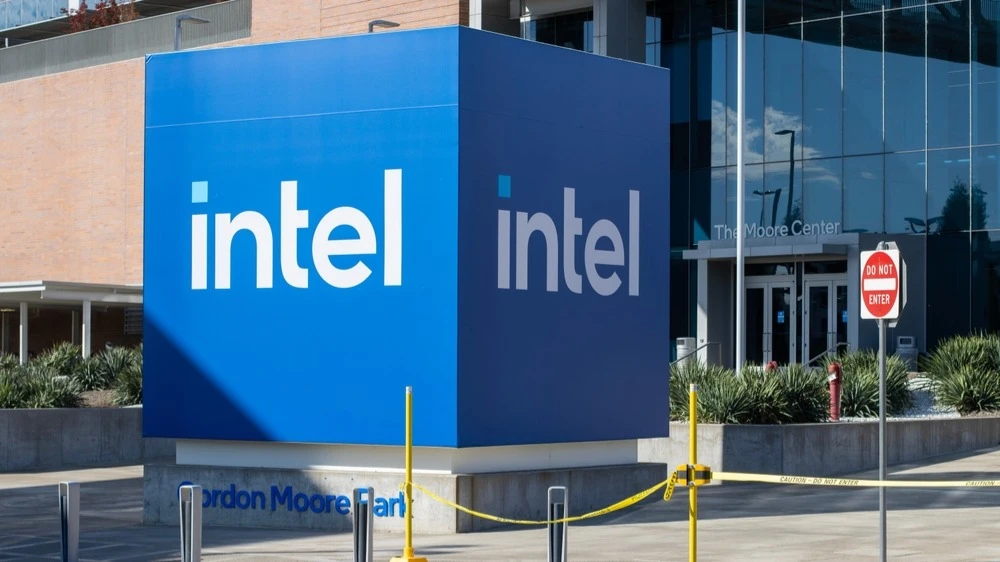Nvidia invests $5 billion in Intel as part of AI collaboration. Intel shares soar
The deal is a game changer for Intel, says Wedbush analyst Dan Ives

Nvidia will invest $5 billion in Intel and become one of its largest shareholders, receiving about 4%. The companies agreed to jointly develop chips for PCs and data centers: Intel will use Nvidia's graphics in processors, as well as supply its products for servers based on Nvidia technologies. Against the backdrop of the deal, Intel's shares soared by almost 28%, while Nvidia's quotes added 3%.
Details
Nvidia will invest $5 billion in its rival Intel. The company will buy Intel's common stock at $23.28 apiece, making it one of the largest shareholders with a stake of about 4% or more, Reuters calculated. The manufacturers have agreed to jointly develop chips for PCs and data centers: Intel will use Nvidia's graphics technology in future PC processors and supply its data center processors based on Nvidia's hardware. The financial terms of the technical partnership were not disclosed, but representatives of the two companies emphasized that this is a commercial chip-sharing arrangement, with no licensing. They said they will create "several generations" of joint products, but did not specify the release dates of the first products either.
"This historic collaboration tightly integrates Nvidia's AI and accelerated computing stack with Intel's processors and vast x86 ecosystem - merging two world-class platforms," Nvidia CEO Jensen Huang said in a press release. - Together, we will expand our ecosystems and lay the foundation for the next era of computing."
"We appreciate the trust that Jensen and the Nvidia team have shown us with their investment and look forward to the work ahead as we innovate for customers," added Intel CEO Lip-Bu Tan.
How did the stock react
In trading on September 18, Intel shares soared almost 28% to $31.8. This became their maximum since July 2024. After such a sharp jump, the company's value rose by almost 56% compared to the beginning of 2025. For comparison: the main U.S. stock index S&P 500 for the same period added about 13%.
Quotes of Nvidia jumped 3% to $175.3. Its market capitalization is up 30.5% since the beginning of the year.
What this means for the market
Support for Nvidia opens new prospects for Intel after years of unsuccessful attempts to carry out a transformation, notes Reuters. Thus, the deal carries a risk for Taiwanese TSMC, which now produces flagship processors Nvidia: in the future, part of this business may go to Intel. AMD, which competes with Intel in the data center segment, is also vulnerable - its position may weaken because of the alliance with Nvidia, the publication adds. The cooperation of the two competitors also shows how the balance of power in the industry has changed: Intel is getting a financial boost and access to advanced technologies from a company it once considered a second-rate player, Bloomberg adds.
Fresh injections for Intel came after the U.S. government bought about 10% of its shares in August and President Donald Trump publicly supported the company. In September, it was joined by a surprise $2 billion investment from Japan's SoftBank Group, which is actively investing in U.S. chip manufacturing and cloud infrastructure. In addition, Intel continues to sell assets to replenish its cash reserves.
What the analysts said
"This [agreement] reflects Nvidia's desire to partially diversify its investments in the U.S. as well as earn points with the government," IG Group chief market analyst Chris Beauchamp said in a statement to Reuters.
"Anything Nvidia decides to back immediately makes the partner company's stock attractive - it means Nvidia sees value in Intel," said Andersen Capital Management founder Peter Andersen.
The deal is a game changer for Intel: it puts it "at the forefront of artificial intelligence," Wedbush analyst Dan Ives noted. Combined with the recent federal intervention, "it's been a golden few weeks for Intel after years of investor pain and frustration," he emphasized.
"It's not clear yet whether this collaboration is more symbolic and political or the beginning of a deeper partnership that will bring tangible benefits to Intel," added Chris Caso of Wolfe Research CNBC. The big question, he said, is whether Nvidia will manufacture in Intel's factories.
This article was AI-translated and verified by a human editor
